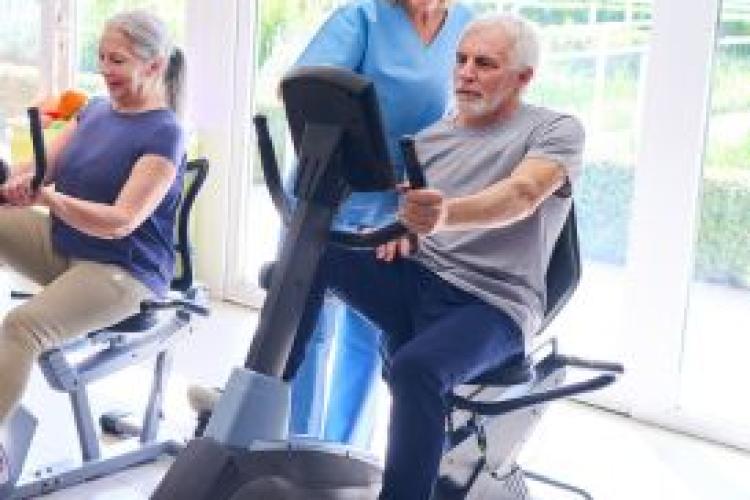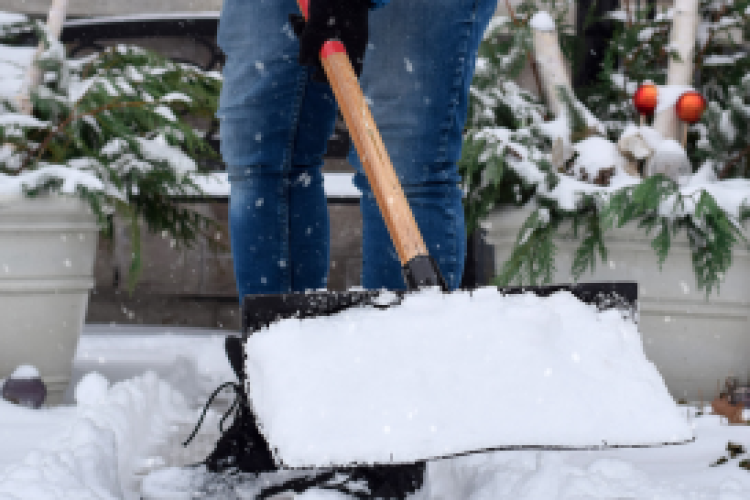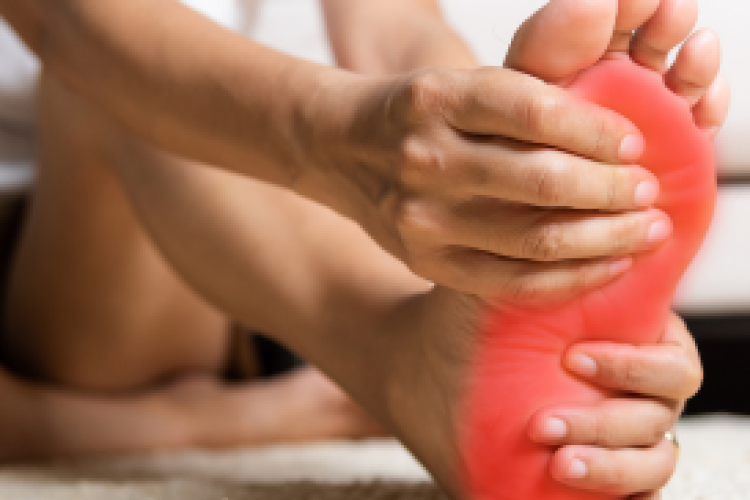Dr. Michal Tracz of Montefiore Nyack Hospital and Highland Medical, P.C., Rockland Renal Associates held a Town Hall to answer patient questions about COVID-19 with New York State Senator David Carlucci. Here, Dr. Tracz explains the latest news about the coronavirus:
Q: Why is social distancing so important?
A: Social distancing is deliberately increasing the physical space between people to avoid spreading illness. Staying at least six feet away from other people lessens your chances of catching COVID-19. It’s very important to understand that asymptomatic spread is driving this illness. This means that people who do not feel sick are spreading it. Unless we have extreme social distancing measures in place, people without symptoms will go to the local store and spread it. The only way to stop spreading it is for all of us to to stay home.
Q: How soon after being infected will a person start showing symptoms?
A: Usually symptoms will start an average of 5 days or so after you’ve been infected. Some people can show symptoms up to 14 days (the official quarantine time). Some people who have shown symptoms up to 27 days, but they are rare outliers.
Q: What is the difference between COVID-19 symptoms and the flu or allergies?
A: Allergy season is upon us, which means we may start sneezing and have a sore or scratchy throat. If this happens, try taking allergy medication for two days. If it’s allergies, you should start feeling better. If you are sneezing, it’s unlikely to be COVID-19. Only 5% of COVID-19 patients have nasal congestion.
With COVID-19, 88% of patients get fever and it will be high – 100.5 at least. The second symptom is a dry cough—you’re not bringing anything up. The third symptom is muscle aches. All of these are also flu symptoms. If you’re coughing and green stuff is coming out, you probably have bronchitis, and you should call the doctor for antibiotics.
Shortness of breath is the most important COVID-19 symptom to look for. It can happen with the flu as well, but is more likely to happen with COVID-19. You’re sitting and you’re out of breath like you just walked up a flight of stairs. That’s why I recommend that everyone get a device called a pulse oximeter. You put it on your finger, and it measures the amount of oxygen in your blood. If I get a call from a patient who’s concerned they may be infected with COVID-19, if they can tell me what their blood oxygen level is, it will help me decide if they need to go to the hospital.
Q: What underlying conditions are affected most by COVID-19?
A: Diabetes, high blood pressure, congestive heart failure and chronic obstructive pulmonary disease (COPD). The good news is that the virus does not seem to be more risky for people with cancer or transplant patients.
Q: What do I do if I test positive?
A: There are two possibilities. If you test positive and you feel well or do not have severe breathing problems, you’ll go home, with the understanding that you should stay away from everybody. You’ll treat your symptoms with fluids, rest and sleep.
If you do go to the hospital because you’re not breathing well, the hospital will give you oxygen. (Again, having a pulse oximeter will help you decide if you need to go to the hospital). Hopefully, that will help you through the peak of the infection until your body is able to fight it off.
Q: Should I stay away from NSAID medicines if I test positive? What about steroids for asthma?
A: There are some reports from France that suggest if a person gets a fever from COVID-19, they shouldn’t use a non-steroidal anti-inflammatory medicine (NSAID) like ibuprofen (Advil). This may be because the anti-inflammatory property of these drugs may lower the body’s ability to fight off the virus. Acetaminophen (Tylenol) is a fine alternative. If you take steroids for asthma and test positive for the virus, ask your pulmonologist if you should continue taking them.
Q: What about vitamins and supplements to ward off or treat the virus?
A: The Internet is full of possible solutions. Some are harmless. Some people talk about taking vitamin D as being protective. Taking 1,000 units of vitamin D a day is probably not a bad idea. It won’t hurt and may help.
As far as we know, vitamin C does not help, but it won’t harm you in regular doses. Same applies for elderberry extract.
Zinc is a little trickier – I wouldn’t recommend it if you have diabetes or high blood pressure. That’s because zinc can affect the kidneys, and both of those conditions can also affect the kidneys.
Q: Is there immunity to the virus once you’ve recovered from it?
A: It seems that people who appear to have recovered and gotten it again never cleared the virus from their body in the first place. Although it’s been reported that people clear the virus in 14 days, there have been cases where people have actually had the virus for longer—even as long as 27 days. So people don’t seem to be getting reinfected. Rather, some people are taking longer for the virus to clear their body. So it does appear that once you are sick and have recovered, the immunity to the virus will last. The question is how long. With some viruses, immunity is lifelong, like chicken pox. Others, like the seasonal flu, change over time.
For the coronavirus, we suspect that immunity will last at least a year, and more likely it will be for longer than that. We don’t know how long, whether it will be for a lifetime or not. But it seems that once your body has been cleared of the virus, you are not likely to be reinfected with this particular strain.
Q: Will the warmer weather help slow down the virus?
A: Warm humid weather does seem to help slow down the spread of other types of coronavirus. This is because when you cough, droplets come out of your mouth. The heavier the droplets, the sooner they fall. In humid weather, the moisture enters the droplet, and makes it heavier and it drops sooner, so it hangs out for much less time. If you cough in cold, dry weather, the droplets go further. They stay in the air longer and they infect more people. But we don’t know for sure that this will happen with this particular strain of coronavirus.
Q: How will this pandemic end?
A: Hopefully soon, we’ll have enough tests so that for everyone who tests positive we will be able to do contact tracing. That means we’ll ask you everyone you’ve been in contact with, and test them too. Whoever is positive will be isolated at home. With these measures, along with the extreme social distancing, the virus will have nowhere to spread.
Then we hope to have a medication soon that will treat COVID-19. We do have a medication that has worked well in individual cases called Remdesivir. It was developed to treat Ebola but is not on the market. It’s not specific to Ebola – it’s a general antiviral drug.
But in science we don’t rely on anecdotal reports. We need to study this. There is already a study of this drug going on in a quarantine center in Nebraska. We are expecting results maybe in a month from now at the earliest. If the studies show it’s effective and we are able to use the drug more widely, that’s going to be a game changer. The anxiety will start to die down because we’ll have a treatment. Other drugs are being tested as well.
The most important thing is to truly understand the nature of the threat. This is not a radioactive cloud coming to your home. You’re safe inside your home. You can actually go outside and take a walk. You can take your kids outside for a bike ride. Just don’t get too close to other people. The virus lives mostly indoors. Stay at home and encourage younger people in your life to take it seriously. They’ve heard they’re unlikely to be affected, so they say, “Then why do I have to stay at home?” The kids have to stay at home because they don’t want to infect their grandparents. We really have to hunker down at home for awhile, and it’s going to be OK.
See the entire Town Hall, click here.



 Upcoming Events
Upcoming Events



